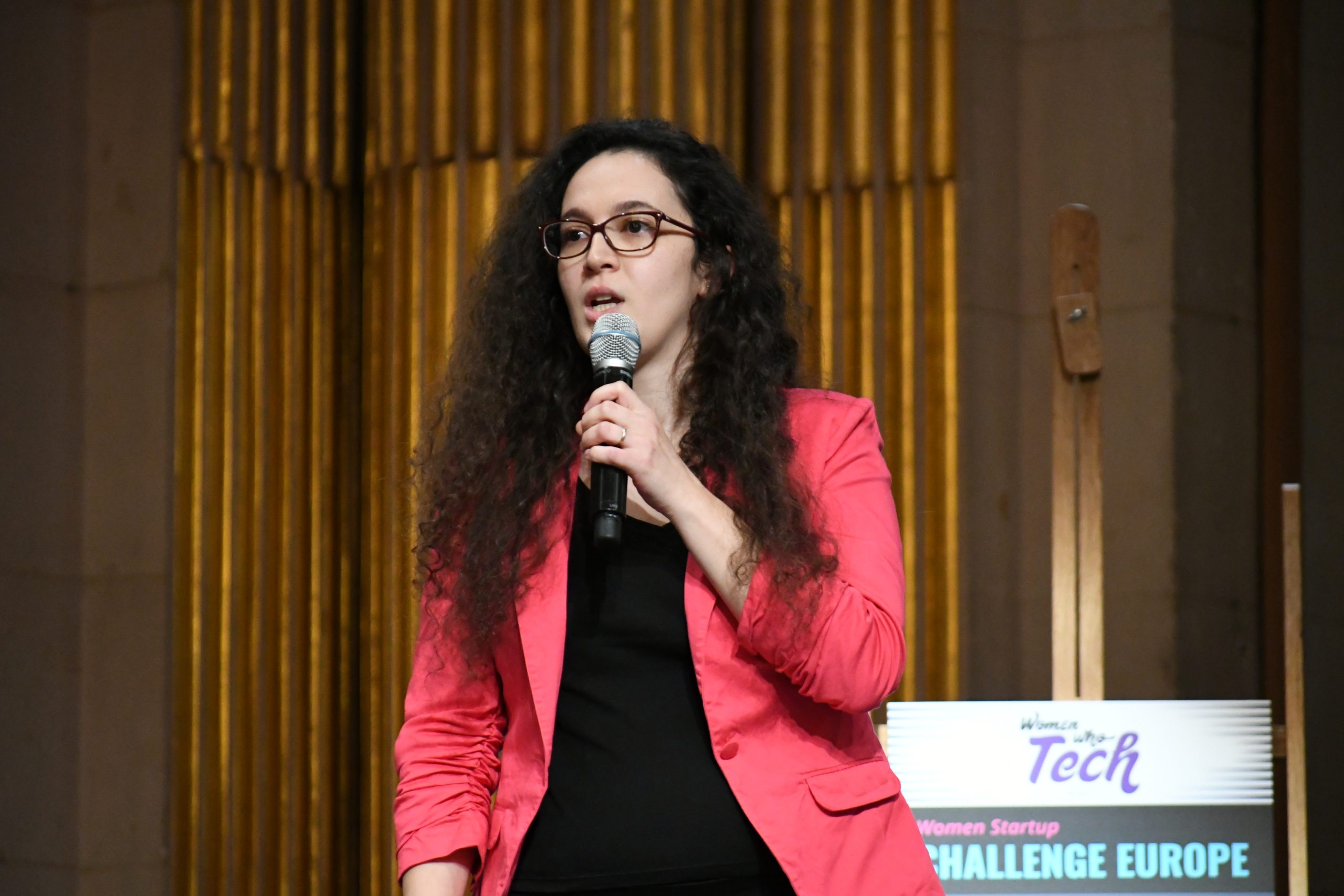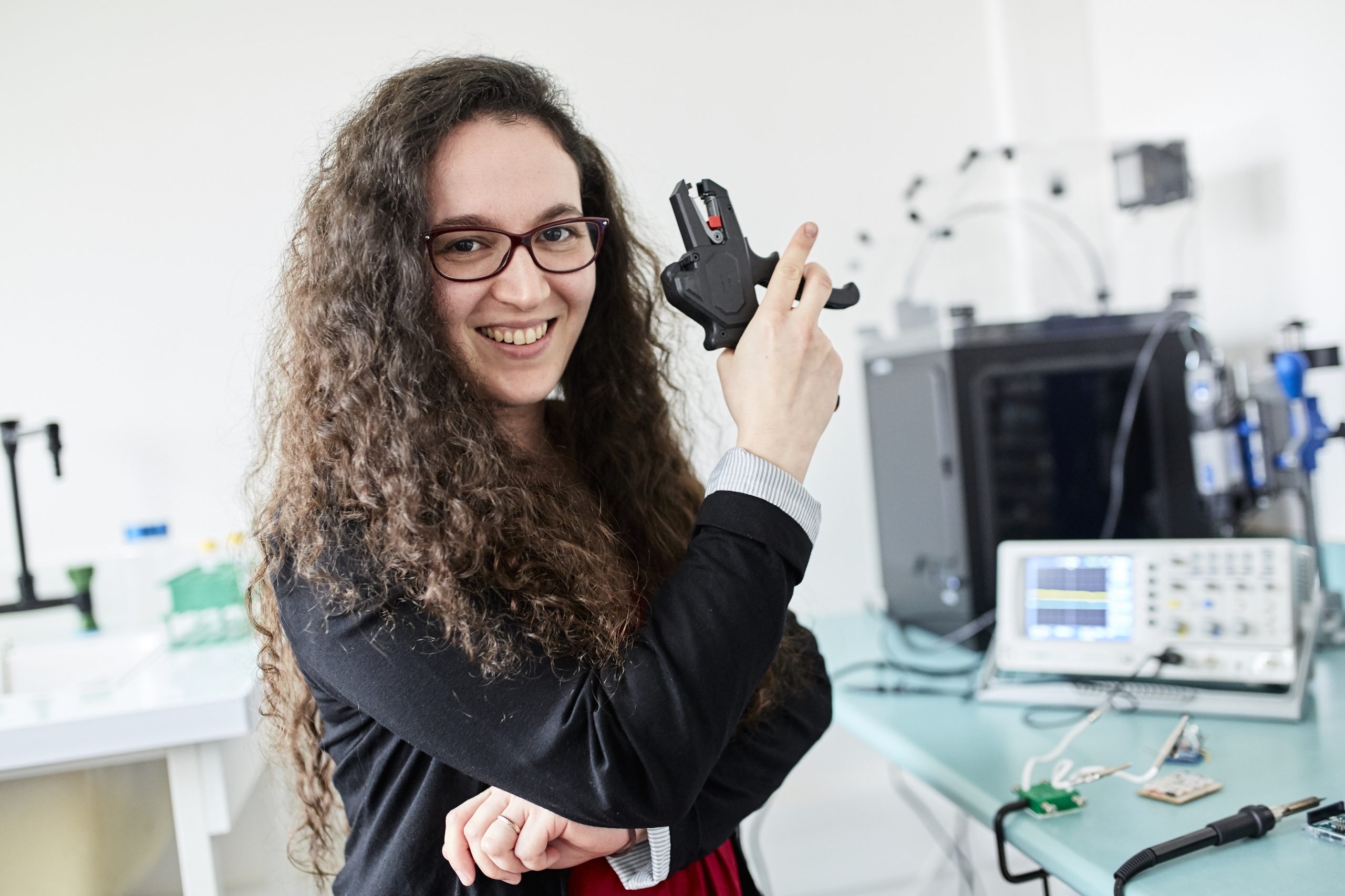Amel Bendali is no stranger to hard work. With initial training as an engineer in biotechnology and with a PhD in Neuroscience, she’s now COO and Co-Founder at Inorevia, where she’s mainly in charge of business development, marketing and HR management.
This may seem like a big jump, but Amel credits her strong scientific background to transferring skills to her most recent role, “when I work on our product specifications, when I contact prospects (mostly biologists who would use our solution), when I discuss with our industrial partners… I also trained in business and marketing at a famous French business school. It gave me insights and strong basics to develop skills in the business area, which is new to me.”
That, and she also wanted to build something herself to make the biggest impact possible. Inorevia uses science and innovation to make the life of biologists easier, by using an automated machine to perform biological analyses faster, and with smaller quantities of sample and reagents. This basically allows them to run more analyses per sample, which saves money on costly reagents and precious technician time at the bench.
Amel was one of the ten finalists pitching on stage at the 2018 Women Who Tech Europe competition, and earned the Audience Choice Award. We sat down with her post competition and talked about learning new skills and prepping to pitch.
You’ve gone from a heavy academic and scientific research background to co-founder of a startup. What have been some of the difficulties you’ve faced in that transition, and how have you dealt with them?
Besides what’s similar to any entrepreneurial experience, the main difficulty has been the transition from thinking with the technological point of view to translating the customer pain point and needs into a product they will actually buy! All while keeping in mind the technical challenges that remain a big part of our client needs and of our solution.
Of course, the training I had in business and marketing helped me a lot to face that transition, but mostly commonsense and empathy were my best allies. To be able to actually listen to what the market is saying (and not saying) is crucial to what I do.
Observing and talking to future/potential customers in the field – in their labs, hospitals, research centers, etc – is what makes me learn the most about their needs, and shapes our products to get the job done.
And has anything in your academic career been particularly helpful in that transition, besides, of course, your scientific skill set?
I had the opportunity to work on a multi-disciplinary project during my PhD thesis, and this experience was extremely rich and rewarding. I interacted with experts from several backgrounds – biology, engineering, material science, mathematics – on a project that has an application in clinics for patients. This amazing experience made me stay quite humble, but I’m also very proud of what I contributed to such an ambitious project. And again, empathy was crucial to keep the project advancing, with good communication between all the people involved.
I also like the challenge of working in marketing when my background is science and technology-based. I talk to people and understand what they do and how and why they do it this way, which is exactly what you’re supposed to do when defining a product in a marketing position. So I’d say it is quite a good fit for me !
How did you prep for your pitch at Women Startup Challenge?
The difficulty for high tech projects/companies/products is to make the audience understand the customer need and pain point, and the impact our solution will have for the people using it, while simultaneously keeping the message simple. Obviously we can’t lose the audience in the details of the technology. Easy to say… I’d already done this kind of pitch, but never in such a short time and in front of so many people, so it was quite a challenge!
Thanks to the Women Startup Challenge, we had the opportunity to work with a coach who gave us very relevant advice. With the insights I made, I gave a clear and dynamic message, I used a simple example to show how Inorevia will make a difference, and that got me to winning the audience prize at the Challenge.

Anything else?
I’d like to take the opportunity of this profile to thank again the Women Startup Challenge for everything they brought us, as finalists of the Challenge, especially through their amazing network. And also thanks to Allyson Kapin and Justyn Hintze for their availability, kindness, great advice, always with a smile even when wrapping up the last details of the event !
We are currently raising funds to get us to an important milestone of industrialization and commercialization of our first product within the next 2 years, a new exciting challenge ahead of us !

